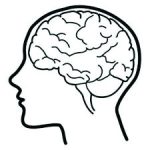Look after your mind – Sept 2025

Reality: It is what it is – But what is it?
Looking up ‘reality’ in my Concise Oxford Dictionary, I find it defined as the ‘property of being real’, which doesn’t really help. It is also defined as ‘real existence’, which begs the question of what it means for something to exist. More interestingly, the definition also includes ‘what underlies appearances’. This idea goes back over 2000 years. The philosopher Plato’s analogy that human perceptions of reality are like prisoners chained in a cave, watching the play of shadows on the walls cast by real objects passing in front of a fire. Thus, what we take to be reality are the shadows of a deeper reality. Plato has more to say on the matter, though some modern philosophers have found difficulties with his thesis.
Evolution changing our perceptions
The contemporary philosopher Donald Hoffman argues that evolution has shaped our perceptions of what we take to be real. He believes that what we see and hear, etc. are the outcomes of ‘tricks and hacks’ that keep us alive and that evolution has given us an interface that hides reality and guides adaptive behaviour. In other words, our view of reality is designed to help us survive. He compares space and time to a computer desktop, while physical objects are like the icons on the desktop. I.e. a kind of shorthand representation of the deeper programming that allows the apps to work. Hoffman calls these ‘perceptual symbols’. He says that perception is not about ‘seeing truth’ but about reacting to ‘simplistic illusions’ that help us to navigate the world around us.
The Conscious Mind
It’s certainly true that consciously we take in very little of what’s around us. The conscious mind has been likened to a laser beam that illuminates what catches our immediate attention. Whereas the subconscious mind is more like a soft, all-encompassing floodlight that takes in everything. This leads to the notion that subconsciously we perceive and know much more than we consciously do. If we had to consciously process all of the sensory impressions that reach the brain, we’d be overwhelmed. We’d be paralysed into complete inaction. The writer Aldous Huxley suggests that the conscious mind is a ‘reducing valve’ that, again, allows us to cope with everyday life.
Scientific discoveries
On the scientific front, we are making new discoveries constantly. When I was a boy, the idea of black holes in the universe was only a theory. They have since not only been confirmed but recently photographed. And, again recently, astronomers were startled to realise that what we observe of the universe – all the stars, nebulae and galaxies, etc. – make up only around four per cent of the total. The rest being composed of so-called dark matter and the even more mysterious dark energy. It’s also the case that the fringes of science keep expanding. There may well be much more of ‘reality’ still to discover, or even to be imagined.
I wonder, then, if it will be at least another 2000 years before we get much closer to a final answer.
Steve Bowkett




 Midland Main Line New
Midland Main Line New

